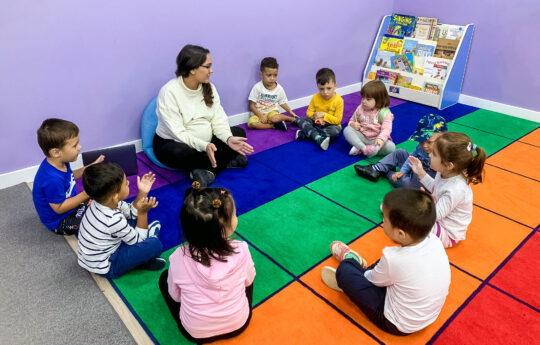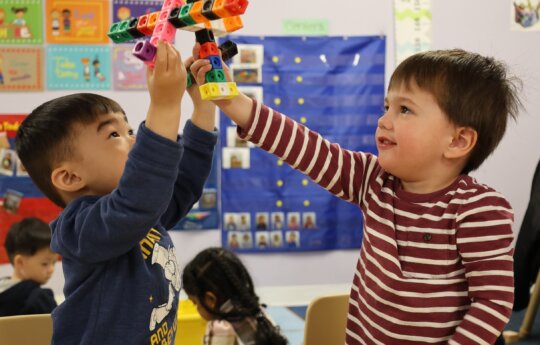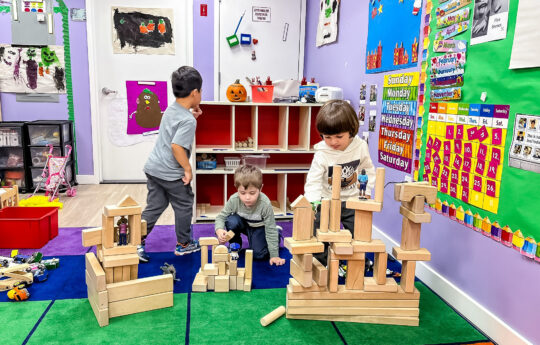
Parents frequently strive to offer their child everything at once in an effort to set up a child to win in life and make up for the things they were deprived of as children. Some of these things include the top-rated daycare centers and schools, the newest entertainment venues for birthday parties, and the nicest toys.
But would this be sufficient to bring up a happy child with a winner mindset? According to research, a baby winner first concentrates on his parents on the path to developing an intelligent and autonomous personality. These people are their initial mentors and teachers.
Is Your Child Having a Hard Time With Failure?
In situations like this, our kids need to know that we don’t condemn them and that they’re free to express their feelings openly. They must understand that we will always love them. They require our assistance in the form of a sympathetic shoulder pat or a look that conveys “I realize how upset you are.” And simply pay attention. Let the child express himself completely.
In a time of frustration, this is the best thing you can actually do for them. There’s no need to stop the flow of feelings. Assist them in continuing after a negative encounter. A parent must be unselfish and honest in order to be there for their child, experience their suffering, and use their words in a way that will help the child both through and after a struggle.
What Are the Signs of a Low Failure Tolerance?
The so-called exceptional student syndrome can emerge in kids who always aspire to outperform others. You should pay attention to a few signs in order to identify your child’s low failure tolerance:
- Perceives any criticism or comments made about him sharply, and occasionally even extremely painfully.
- Jealousy reacts to other people’s achievements or praise.
- They tend to avoid beginning a task if they are unsure that they will do it perfectly and without mistakes because it is difficult to encounter failures. But if the youngster nevertheless attempted and failed, this could result in apathy and a melancholy condition, causing him to withdraw from others and lose faith in his own talents. This, in turn, could also prevent him from moving on to the next activity.
- Such children have quite a fragile self-esteem that is influenced by how their surroundings respond to their accomplishments. While criticism can drastically diminish a child’s self-esteem, praise can significantly improve it.
- Being the best, receiving the highest marks, and having the finest characteristics always serve as the primary motivation.
- Such kids can lie or cheat to get what they want, simply because the end result is more important than the means.
- The kid becomes quite upset and could even start crying if you neglect to praise them.
It can be challenging for your kid to remember that this experience is required for his own growth if they react angrily to defeat or a child’s failure and throw game pieces on the floor. But if they can learn to deal with this minor setback now, they will reap huge rewards afterward. And that is its intended meaning. Parents should try and change the way a child thinks and try to make them realize that failure doesn’t mean that he or she is a baby loser.
What Can You, As a Parent, Do to Teach Tolerance of Failure to Your Children?
The youngster needs to be taught how to respond to failures differently if after even the smallest setback he starts to weep, have tantrums, or punch the winner.
When parents themselves do not have confidence in their children’s ability to succeed and do not instill self-confidence in them, this is negative. The inability to lose, tears, tantrums, and anxiety disturb the child’s nervous system and render it helpless in the eyes of others. Parents should be aware of this.
The child must be taught to accept his defeat by telling himself, “Yes, this time I was weaker than others, but next time I can be stronger.” The kid must comprehend that everything is solely dependent upon him, including his knowledge, abilities, skills, and disposition.
The most important thing is to instill in the youngster the ability to tolerate failure, learn from it, and identify his own failings. This is a life experience that is simply necessary for future victories. Parents must therefore assist their children in making sense of events and recovering from defeats. Give them time to talk, cry, and then sit and contemplate the problem calmly. Consider the reasons they failed, the specific mistakes they made, and the areas that want improvement. The child should be adjusted to the good. Assume that there will be many more wins and losses in life, and that you must respond to each one appropriately in order to keep moving forward – this is a true core of a healthy winning mindset.
Parents should congratulate their kids on every little achievement. Many dads and mums consider a child’s good grades and minor accomplishments to be entirely natural. Children start to believe that they are unworthy of praise and that they have nothing to be particularly proud of, despite the fact that this is untrue. A youngster can easily distance themselves from their parents and start to treasure the approval and words of strangers who were able to recognize their efforts.
The Advantages of a Winning Mindset Learned at a Young Age
What is a winner mindset? It’s simply a way of thinking that makes it possible to achieve anything. After all, to think like a winner is to be able to build a path to the goal and persistently follow it.
Anything your child wants is within his grasp, but only if you assist her in developing self-sufficiency.
How effectively we can handle challenges directly affects how successful we are in life. The more options we have for solving issues, the better equipped we are to overcome them. Develop your child’s creativity from an early age by encouraging them to sketch, participate in music and dance, write poetry, stories, and their own endings to well-known fairy tales, as well as come up with novel ways to use everyday materials. Encourage the child’s interest and inquisitiveness. Without a clear understanding of what they want, it is challenging for someone to succeed. A child must be taught to be conscious of his desires, to create goals and attain them from a young age. It is crucial to allow the child to experience the taste of success. So make sure to give the kid credit where it’s due!
Develop your children, broaden their horizons, instill positive emotions in them, and you will have many reasons in the future to celebrate their accomplishments and be proud of them. Children that were educated and nurtured from an early age always put in more effort, persevered in their endeavors, and achieved success in the end.
Our kids must develop a conscious attitude toward the entire activity process in order to fully respect themselves. This includes picking the amount of difficulty, choosing the materials and methods to use, and choosing self-esteem at the end of the activity phase.




